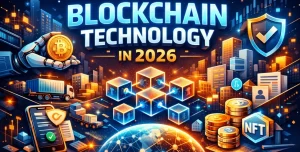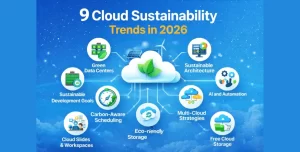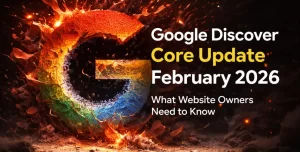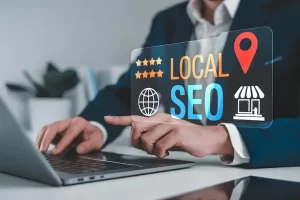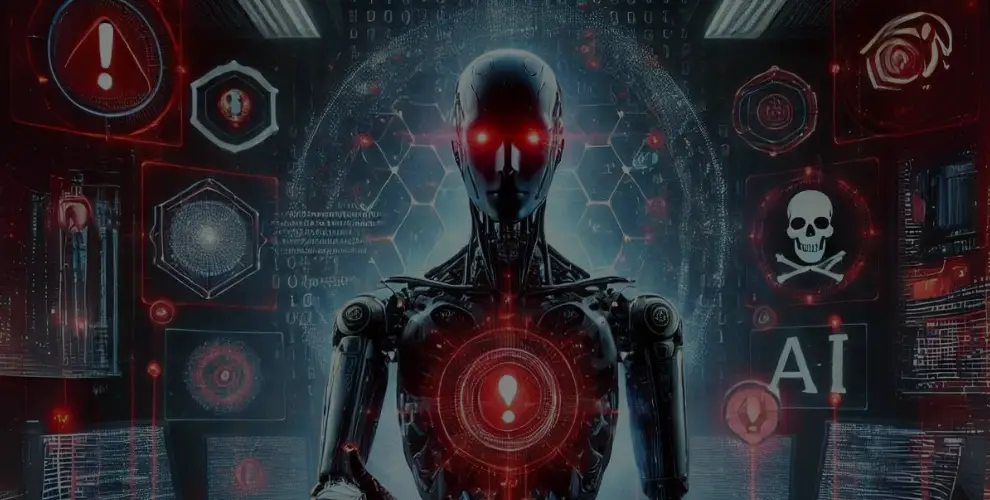
Can AI be Dangerous?
Table of Contents
Introduction
Welcome to WikiGlitz!
We’ve brought you this amazing blog exploring the question: Can AI be dangerous? Artificial intelligence (AI) is revolutionizing industries and our daily lives.
However, with its rapid advancement comes a host of ethical, societal, and security concerns. This blog will dive deep into real-life examples, expert insights, and credible studies about AI’s dangers and its implications for the future.
Key Takeaways
- AI can have harmful consequences, including job losses, privacy violations, and security threats if not regulated.
- Real-life examples like facial recognition misuse and autonomous weapons highlight AI’s risks.
- Experts emphasize the need for AI safety measures to prevent catastrophic misuse.
Is Artificial Intelligence Dangerous?
Artificial intelligence holds immense potential to improve lives, but it’s crucial to recognize that AI can be dangerous if misused or not properly regulated.
Real-life examples show the risks of AI technology in various sectors.
For instance, in 2018, Amazon had to scrap an AI recruitment tool after discovering it was biased against women.
The system, which was trained on resumes mostly from men, began downgrading resumes that included the word “women’s.”
This case demonstrates how AI can perpetuate gender bias and lead to unfair outcomes if it’s built on biased data.
Dangers of Artificial Intelligence
The dangers of artificial intelligence come in many forms, from job displacement to security threats:
- Job Displacement: Many fear that AI will cause widespread unemployment. A PwC study estimates that up to 30% of jobs could be automated by the mid-2030s. Self-driving vehicles, for instance, could displace millions of truck drivers worldwide.
- Autonomous Weapons: Another pressing concern is the use of AI in autonomous weapons. Experts like Elon Musk have warned that AI-powered weapons could become more dangerous than nuclear weapons. Autonomous drones or robotic soldiers could act without human intervention, increasing the risk of unintentional escalations during conflicts.
- Bias in Decision Making: Similar to Amazon’s recruitment tool, AI systems in healthcare or criminal justice can also exhibit biased outcomes. For example, ProPublica revealed that an AI tool used to assess the likelihood of recidivism was biased against Black defendants.
These cases show how AI, when poorly designed, can lead to harmful consequences.
Can AI Destroy Humanity?
The question Can AI destroy humanity? often arises in discussions about superintelligent AI. Though we are far from that scenario, experts like Stephen Hawking have cautioned that AI development needs regulation to avoid catastrophic risks.
At the moment, AI does not have the capability to destroy humanity, but its potential misuse—such as in autonomous weapons—could have disastrous consequences.
This is why organizations like OpenAI focus on developing AI safely and ethically, ensuring it remains beneficial to society .
Ethical Concerns of AI
Ethical concerns of AI are a growing area of focus for policymakers and developers. Some of the key ethical concerns include:
- Privacy Violations: Does AI pose a risk to privacy? Yes, it does. For instance, Clearview AI, a facial recognition startup, was found scraping billions of photos from social media to build a powerful surveillance tool. This technology raised significant privacy concerns as it could be used to track individuals without their consent.
- Lack of Accountability: Who is responsible when an AI system makes a mistake? In 2018, an Uber self-driving car hit and killed a pedestrian in Arizona. This tragic incident brought attention to the need for clear legal frameworks regarding the accountability of AI systems.
- Informed Consent: When AI is used in areas like healthcare, patients often don’t know how their data is being used. This raises significant ethical questions about consent and transparency.
Risks of AI Technology
There are several risks of AI technology, from job losses to increased inequality:
- Economic Inequality: AI advancements tend to benefit large tech companies, which could widen the economic gap between countries and social classes. The World Economic Forum warned that AI could concentrate wealth and power in fewer hands.
- AI-Driven Misinformation: AI-generated deepfakes are another growing threat. In 2019, a deepfake video of Mark Zuckerberg went viral, making it appear that he was boasting about controlling billions of people’s data. These AI-manipulated videos raise concerns about misinformation and its potential to influence public opinion.
Will AI Take Over the World?
The question Will AI take over the world? sounds far-fetched, but it reflects fears that AI might act autonomously in the future, with limited human control.
Currently, AI lacks the autonomy or intent to take over the world.
However, experts like Stuart Russell, an AI researcher, have voiced concerns that unchecked AI development could lead to unintended consequences.
Russell argues for the need to build “provably beneficial AI”, systems that are guaranteed to act in accordance with human values.
How Can AI Be Harmful?
How can AI be harmful? Beyond job loss and privacy concerns, AI can also exacerbate social problems:
- Bias and Inequality: As seen in Amazon’s recruitment tool, biased AI systems can perpetuate discrimination. AI in criminal justice systems has been shown to unfairly target minority groups.
- Social Manipulation: AI algorithms on social media platforms can promote content that manipulates user emotions, leading to polarization and mental health issues.
Negative Impacts of AI
The negative impacts of AI are far-reaching:
- Social Isolation: AI systems, especially in customer service, reduce human-to-human interaction, which can contribute to loneliness and isolation.
- Surveillance: AI technologies like facial recognition are increasingly used by governments for surveillance, raising concerns about civil liberties and privacy.
Is AI a Threat to Jobs?
One of the most discussed issues is whether AI is a threat to jobs. The answer is complex. While AI is likely to replace some jobs, especially in manufacturing and customer service, it may also create new roles.
For example, McKinsey predicts that AI could eliminate 45 million jobs in the U.S. by 2030 but simultaneously create 20 million new ones in fields like AI development and maintenance.
How Can AI Affect Society?
How can AI affect society? The effects are profound, impacting sectors from healthcare to education:
- Healthcare: AI-powered diagnostics have helped detect diseases earlier, but they also raise concerns about data security and potential misuse.
- Education: AI is revolutionizing education by allowing for the personalization of learning. However, this could exacerbate inequality if access to these technologies is not universal.
AI Safety Concerns
To address AI safety concerns, organizations like OpenAI and the Partnership on AI work on guidelines to ensure AI remains a beneficial technology.
OpenAI’s research emphasizes the importance of “safe and broadly beneficial” AI.
Regulatory frameworks, human oversight, and ethical AI design are crucial in mitigating risks.
Conclusion
In conclusion, while artificial intelligence holds incredible potential to transform industries and improve our lives, it also presents serious risks that must be carefully managed.
From job displacement to privacy violations and security threats, AI can be dangerous if not handled responsibly.
As we’ve seen through real-life examples and expert insights, ethical concerns and the need for regulations are paramount to ensure AI works for the benefit of humanity rather than against it.
It’s essential for governments, organizations, and developers to work together to create a future where AI technologies are safe, fair, and transparent.
By fostering responsible innovation and addressing the potential dangers head-on, we can harness AI’s power to build a better world.
Thank you for reading this blog brought to you by WikiGlitz! Follow WikiGlitz for more expert insights and up-to-date discussions on the evolving world of artificial intelligence and technology.
FAQs
Is Artificial Intelligence Dangerous?
Yes, AI can be dangerous if misused or poorly regulated. It can lead to job losses, bias, and security risks.
How Can AI Be Harmful?
AI can perpetuate bias, violate privacy, and be exploited for surveillance and misinformation purposes.
Will AI Replace Humans?
AI will replace certain tasks, but it is more likely to augment human abilities, creating new job opportunities alongside job losses.
Does AI Pose a Risk to Privacy?
Yes, AI-driven technologies like facial recognition can infringe on privacy if not properly regulated.
How Does AI Affect Security?
AI improves security by detecting threats but can also be weaponized, creating risks such as autonomous drones or cyberattacks.
Can AI Destroy Humanity?
Currently, AI does not pose an existential threat, but experts like Stephen Hawking warn that future developments need regulation to prevent catastrophic outcomes.
Want to keep up with our blog?
Our most valuable tips right inside your inbox, once per month.
Error: Contact form not found.
WikiGlitz Team
Welcome to WikiGlitz, your ultimate destination for tech insights and innovation. Our expert team is dedicated to delivering free resources and professional advice on various technology topics, including Artificial Intelligence, Cyber Security, Cloud Computing, and more. We strive to empower our readers with up-to-date information and practical guidance, ensuring you stay ahead in the rapidly evolving tech landscape. At WikiGlitz, we are passionate about making complex technology accessible to everyone. Our team of seasoned experts curates content that is both informative and engaging, helping you understand and leverage the latest tech trends. Whether you're a tech enthusiast or a professional, WikiGlitz is your go-to source for reliable, expert-driven content. Join us on this journey to explore and embrace the future of technology.


